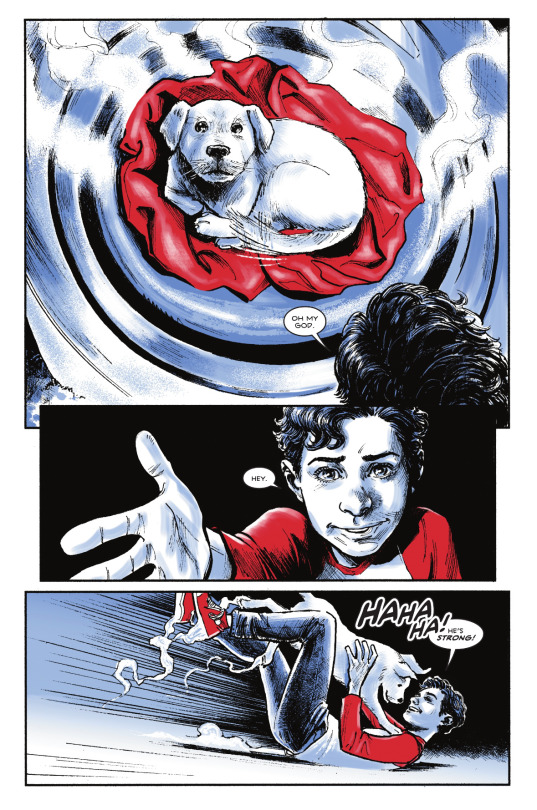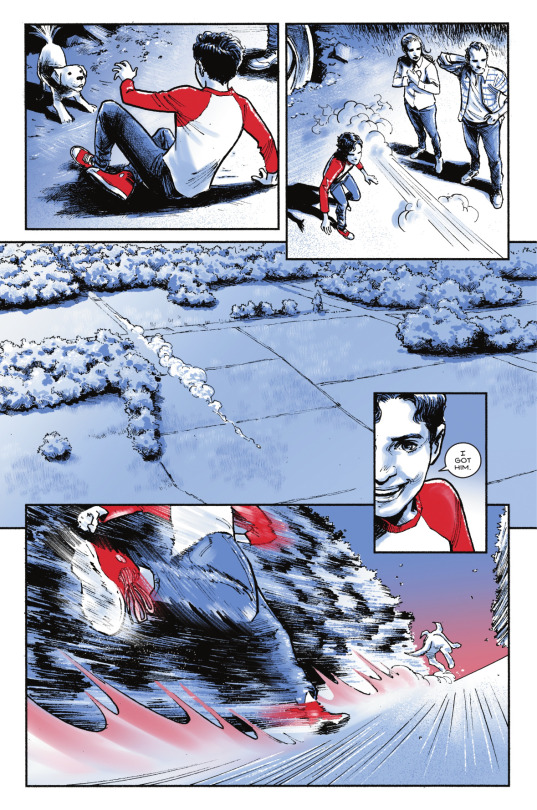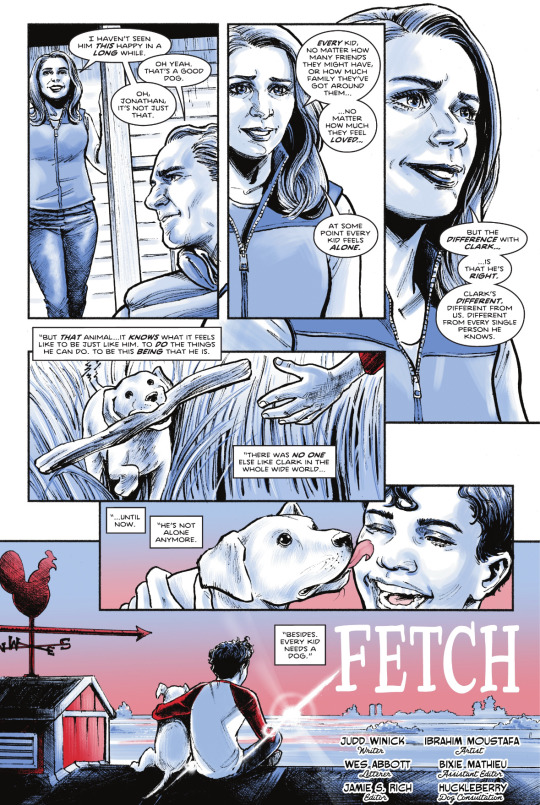#clark ibrahim
Explore tagged Tumblr posts
Text

Great Pretender | 2020
#anime#omg this anime!#the colours are so pretty#like scrumptious#i love everything about this#makoto edamura#laurent thierry#mixed feelings about him 😭#abigail jones#cynthia moore#they're drawn so prettyy#dorothy#clark Ibrahim#ozaki seiji#moodboard#great pretender
23 notes
·
View notes
Text

FIGHT ON FIGHT ON
#orz i wish we got more of their dynamic in the anime#i feel like theyd be really good friends#grepre#great pretender#makoto edamura#clark ibrahim#also clark repping our halal kings we love to see it#edaclark#?#not rlly ship art but i love these two as a pairing#chair art
37 notes
·
View notes
Text




“'Think Tank' is a deliberate call-back to the story Robot from 1975. I figured Conrad did his research.” – writer Pete McTighe
#Doctor Who#Robot#Lucky Day#Sarah Jane Smith#DWedit#Conrad Clark#Ruby Sunday#Fourth Doctor#Brigadier Lethbridge-Stewart#Harry Sullivan#Christofer Ibrahim#Elisabeth Sladen#Tom Baker#Nicholas Courtney#Ian Marter#Jonah Hauer-King#Jonah Hauer King#Millie Gibson#Alexander Devrient#Pete McTighe#Classic Who#New Who#Doctor Who continuity#Four#Fifteenth Doctor era#The Brigadier#The Doctor#tw: guns#500#1000
1K notes
·
View notes
Text



Wonderful work by Judd Winick and Ibrahim Moustafa.
#dc comics#dc heroes#superman#clark kent#Kal-El#judd winick#Ibrahim Moustafa#krypto#superboy#jonathan kent#martha kent
152 notes
·
View notes
Text














The Art of Flying.
#Superman#Lois Lane#Clark Kent#Superwoman#Clois#Kaare Andrews#Alex Ross#Al Plastino#Kurt Schaffenberger#Clay Mann#Julian Lopez#Dan Mora#Jorge Jimenez#Wilfredo Torres#Colleen Doran#Ibrahim Moustafa#Joe Quesada#Guillem March#Jesse Hamm#DC Comics#art
169 notes
·
View notes
Text








New stills from "Wish World"
#doctor who#fifteenth doctor#the rani#mrs flood#belinda chandra#ruby sunday#colonel ibrahim#conrad clark#susan triad#ncuti gatwa#archie panjabi#anita dobson#varada sethu#millie gibson#alexander devrient#jonah hauer king#susan twist#wish world
110 notes
·
View notes
Text
Doctor Who









Doctor Who (2025) - Series 15 Episode 7 "Wish World"
#Doctor Who#dw#dw s15#dw 15x07#s15e07#wish world#the fifteenth doctor#the 15th doctor#fifteenth doctor#15th doctor#belinda chandra#ruby sunday#colonel ibrahim#the rani#mrs flood#susan triad#conrad clark#promotional photos
60 notes
·
View notes
Text
don’t fuck with the Commander cause she’ll have you eaten fr
#doctor who#doctorwhoedit#kate lethbridge stewart#unit doctor who#doctor who unit#jemma redgrave#doctorwho#kate stewart#christofer ibrahim#conrad clark#lucky day#rtd2 era#dw spoilers#dw#dw series 15#the war between the land and the sea#the war between#unified intelligence task force#smash#mother#queen#she’s a diva#the shreek
33 notes
·
View notes
Text
The Perplexing Politics of Pete McTighe

Hey friends, just a heads up, I talk about real-life abuse and violence in this article. Please take care accordingly.
If I had a pound for every time there was a Doctor-lite episode where Ruby Sunday is staring down the barrel of some folk horror only for it to be subverted into a story about a toxic white male, I would have two pounds. Which isn’t a lot, but it’s weird that it happened twice. “Happened twice” seems to be the theme of season two, so far. Susan Twist’s many cameos have been replaced by Mrs Flood’s many cameos. “Lux” bore a strong resemblance to “The Devil’s Chord.” And now we’ve remade “73 Yards.” It’s like Russell T Davies is pulling an “Evil Dead 2,” with season two. He’s got a bigger budget and better concept. Let’s remake the first one but call it a sequel! Was season one a test run? Had to get limber, did we? Well, I hope you’re warmed up because it’s starting to feel warmed over.
If you read my thoughts preceding season two, you’ll know I was not looking forward to this episode. Ruby Sunday’s entire story arc left me feeling quite let down. I felt like we had a vague idea of Ruby’s character, which is a shame because after “Lucky Day,” I was very pleasantly reminded how good Millie Gibson is in the role. In many ways, Lucky Day acts as a proof of concept for a Sarah Jane Adventures-style show with characters like Ruby. Away from the Doctor, Ruby’s character shines. Seeing her in a more commanding role suits her. Lucky Day also gives Ruby a chance at introspection and self-reliance that I admire. Sadly, however, it also plays into some of the trappings of characters like Clara Oswald, who are given focus through grief and trauma.
The RTD2 era has a bit of a Batman problem. Billionaire Bruce Wayne uses all of his money to dress like a bat and beat up the poor and insane. If you think of it from a campy comic book perspective, you can root for Batman because Batman is the good guy and the Joker is the bad guy. If you wrote Batman this way forever, you would never really need to question Batman’s motives. But then you get writers like Frank Miller who suddenly want to give the Bat some depth. If you introduce pathos, you must also be prepared to answer awkward questions. You have to question the nature of the hero. If the companions experience PTSD to the degree that they require a support group, then we are no longer in an adventure in time and space; we’re in the thick of it. But is Doctor Who capable of staring into that Charlie Brookeresque black mirror?
My poor boyfriend struggled with this episode. For a bit of context, he’s a very sensitive man. I’ve learned not to show him certain films and shows because his capacity for second-hand embarrassment is so strong that he becomes panicked. It’s not just characters in embarrassing situations, however; it can also be characters that personify his fears and anxieties. A mundane story about an awkward couple fighting killer monsters in a small English village was something he had signed up for. But when the tone shifted to the all-too-real storyline of a toxic male podcaster spewing hate into the world, he felt betrayed. He said, “I watch Doctor Who to escape this kind of thing.” He couldn’t even relax during the massage I bought him for his birthday because the episode had him so wound up. This wouldn’t be the first time Doctor Who has used its platform to discuss real-world politics. “The Happiness Patrol” parodied Margaret Thatcher’s regime with the depiction of Helen A. But when I watched “Lucky Day” with my sister, she similarly remarked, “That made me angry more than anything else.” So, what is Pete McTighe getting wrong that Graeme Curry got right?

Perhaps one of the clearest differences between the classic and current eras of Doctor Who is that in classic Doctor Who, the ones shouting “Exterminate!” are pepper pots with sink plungers and in modern Who, they’re throwing up “Roman salutes.” Gone are the days of allegory. The Doctor is now fighting literal Nazis. But if Doctor Who is now asking us to have these serious conversations, well, then we will start having these serious conversations. The best place to start is the place I always start, by asking whether Doctor Who is capable of handling such conversations. For example, is it great optics for “I stand with UNIT,” to be trending in an era of ICE raids? ACAB, except UNIT, amiright? This is why they needed to give Conrad those ableist and sexist lines. Because beyond being a total dick, Conrad’s greatest crime otherwise is to ask for transparency from a secretive paramilitary government organisation. It’s the MCU problem where the villains have a great point, but they must be stopped because they’re also mean.
This makes sense when you consider this story comes from the writer of “Kerblam!” wherein the Doctor gives a rousing speech about how the system isn’t the problem, it’s the people who exploit the system. If you asked Philip Zimbardo, he would tell you how systems can take good people and make them do terrible things. And he would know. You get the impression that Pete McTighe is a well-meaning progressive who also canvasses for Labour without a shred of irony. That’s a bit unfair, I don’t know him, but I do know his writing, and it’s a bit weird. There’s a healthy dose of mixed messaging that I originally chalked up to the Chibnall era’s first draft approach, but it’s starting to look like a pattern.
When the Doctor and Bel find themselves in 2007, it’s only for a brief moment. The vindicator needs to be calibrated, and unlike the last stop, the only things happening of note are fireworks celebrating the New Year. There are no haunted theatres or dead miners, just a little boy and a lucky 50p coin. It was a relatively small leg of the Doctor’s journey to bring Belinda back home, but a huge moment for the young Conrad Clark, who goes running back to his mum to excitedly describe the magic blue box he just watched disappear. Much like the Christmas special, “A Christmas Carol,” I hate how brazenly they depict child abuse. Having experienced domestic abuse as a child, I really didn’t appreciate having to see little Conrad get smacked in the mouth by his piece of shit mother. I really wish Doctor Who would stop depicting that shit so vividly. This episode seems hellbent on collecting various triggers. Yay escapism?

Conrad grows up to be obsessed with the Doctor and the unknown to such a degree that it starts to become unhealthy. He seems to run a very popular podcast about the strange and unknown. It has enough listeners that people from various parts of the world gladly tune in to listen to him interview Ruby Sunday. But his podcast is also Think Tank, which is poised to expose such things as fakery. So were the people tuning in because they’re into some X-Files nonsense or because they want to see X-Files nonsense exposed? Would his audience appreciate this bold new change in direction or would it be like Watcher’s “Goodbye Youtube?” Furthermore, if someone invited you onto a podcast, wouldn’t you at least listen to it before going on? Wouldn’t the Vlinx spend its days combing the internet for disinformation about UNIT? Is UNIT really bad at its job, or does Pete McTighe not understand how podcasts work?

Conrad meets Ruby after following her and the Doctor through an abandoned department store as they went monster hunting for a Shreek. The creepy mannequins strewn about the scene had me hoping for an Auton story. We’ve not had a good Auton story in ages. Instead, the reference to Autons is a painful reminder of the episode we could have had. In the words of Mystery Science Theatre 3000’s Tom Servo- “Never show a good movie in your crappy movie.” This wouldn’t be the first time we got the Auton bait and switch. Remember when “Praxeus” fooled us all with its swarms of killer plastic? “Lucky Day” joins Praxeus in the newly minted category of "Pete McTighe episodes that I wish were Auton stories instead." Creating a new genre of Doctor Who story? That’s quite the legacy. Conrad overhears the Doctor give Ruby an antidote to the Shreek’s vomit, which marks its prey for future nomming. I don’t understand why they need to mark prey. I get that they want to scare people because it makes them more tasty, but getting eaten is already pretty scary. Shouldn’t anyone suffice? If the person they mark could be “anyone,” why mark them at all? The Shreek isn’t Tzim-Sha, for godsake. They’re not big game hunters. Christ, I’m referencing Tzim-Sha now.

Conrad snaps a picture of Ruby and posts it to social media in hopes that someone will get him in contact with her. But what person would violate Ruby’s confidence like that? As it would turn out, that person is Ruby Sunday. Between Conrad’s podcast and Davina McCall, Ruby is proving to be one of the Doctor’s most interviewable companions. It’s really odd to me that not only would Ruby respond to Conrad’s creepy post, but then gleefully recount her exploits with the Doctor in a public forum. It would appear that, along with goodbye hugs, departing companions must also be debriefed. You just gonna spill the tea, huh, sis? Why not just write out the Doctor’s schedule and a list of his fears while you’re at it?
Ruby warms up to Conrad after he tells her that he’s an orphan. Finally, someone with whom she can share the terrible pain of growing up with a loving family. Speaking of loving family, Ruby’s two mums and Cherry are all happy to see Ruby and Conrad start dating. It’s a sign to them that Ruby is getting over the Doctor. Cherry would also enjoy washing her clothes on Conrad’s abs, but that’s pretty par for the course with Cherry. She’s a dirty old bird and we love her for it. Ruby’s other mum, whose name I don’t feel inclined to look up, is also there. Our biggest takeaway with her is that she’s still there. Sitting. I get the impression that we won’t see these ladies much more in the future. But it’s Davies, he’ll probably have them all come back for some grand finale at some point. Probably when he leaves again.

Ruby and Conrad take a little trip. I forget where, as it wasn’t incredibly important to me. His friends are supposedly there to meet her, but we all know how that turns out. At this point in the episode, I was mostly content to watch a relatively mundane monster of the week story. I had resigned myself to that Pete McTighe mundanity that we’ve come to rely on. This isn’t the guy you give big episodes to, this is the guy who writes benign short films starring side-characters to advertise Doctor Who Blu-rays. Doctor-lite stories are his wheelhouse. I did like that Ruby called UNIT to alert them of signs of the Shreek. It gives us a good glimpse into her current state and demonstrates that even when she’s panicked, she can take control.

The control is just the issue, however. Ruby is constantly on alert from her travels with the Doctor, which is very realistic. That need to control the situation stems from her fear of losing said control. I’ve had people say to me, “Wouldn’t it be great to be the Doctor’s companion?” To which I’ve always answered with a hardy “No.” I had a guy pull a gun on me in the Sunfresh parking lot in Kansas City. It wasn’t an adventure, and I doubt that gun being held by a Dalek would have made it feel any more so. It stuck with me for years, remembering how frail I felt in that moment. The Doctor’s adventures would give you PTSD, there’s no denying it. So if your question is “Would you like the Doctor to take you on a trip in the TARDIS to go meet Terry Pratchett?” Then yes. Yes, I would. I love any number of fictional universes, but there are very few of them in which I would want to live.
After triggering Ruby and UNIT into a full-on panic, Conrad and his army of internet trolls reveal the big ruse that any other secret agency would have known about months in advance. They once stopped a Krynoid invasion, and now they’re getting clowned on by podcasters. Ruby falls into a dimension of montage where the world is shown to turn its back on UNIT. Even Trinity Wells is back to stir up some shit. No Trinity, not you too! I thought Trinity’s new approach from “The Giggle” had more to do with the Toymaker’s influence, but it would appear she’s a muckracker like the rest of them. Et tu, Trinity? Ruby, having done the podcast and the big exposé live stream, has become the face of ridicule. Her only choice is to weather the storm along with UNIT.

The usual UNIT team is present, give or take a character here and there. We don’t see Morris, Mel, or Rose, but we do see Kate, Colonel Ibrahim, and Shirley Bingham. I remarked to my partner that I liked that UNIT finally has a more permanent roster of rotating characters, like it did in Classic Who. For years, they were haemorrhaging Brigadiers, but Kate put an end to that. Introducing the Avengers tower-esque UNIT HQ gave them even more opportunity to establish a core team. So when they introduced Jordan Lang, naturally, I took notice. Sadly for UNIT’s and Jordan’s sake, he was secretly a mole on the inside. I hope after this episode, UNIT took a long and in-depth look at its security protocols, because evidently, it’s super easy to infiltrate.

After doing a background check on Conrad, they learn he once tried to join UNIT but was rejected because his vibes were off. They also discover that his mother is still alive, living comfortably in France. His podcast, Think Tank, has over 80,000 subscribers, which, as I said earlier, is confusing. Even more confusing is how that required a background check when a Google search would have sufficed. Even more confusing is how Conrad's live stream kept going when the Shreek's background radiation causes power to fluctuate. I did enjoy that Shirley got to be the one to call out Conrad about being a tax evader, considering he referred to her as a drain on taxes. In fact, I really like everyone’s reactions to Conrad’s sudden intrusion into UNIT HQ. Kate letting the Shreek out is some shit her dad would have done. And Ruby’s “Go to hell,” line to Conrad was a genuine high for her character. I even said “Fuck yeah, girl,” in the moment. Hot taser lady indeed.

Because it’s Doctor Who, Conrad is wrong and UNIT is right. And because I’m subscribed to the narrative, UNIT are the good guys and Conrad is the bad guy. But the real-world parallels are so distressing and worrisome that neither Conrad’s comeuppance nor the Doctor’s reprimand feels any sort of cathartic. Having been proven the fool by the existence of the very real Shreek, Conrad has been locked away with his arm reattached, but the Doctor isn’t yet done with him. In a very “Oh shit, dad’s home,” moment, the Doctor invites Conrad into his TARDIS to give him a stern warning. The Doctor’s white outfit gives him an air of mercy, but is betrayed by the ambient red lighting, giving him an enraged glow. As Doctor speeches go, it’s one of Ncuti’s best. He brings a lofty weight to the words that sound like they come from somewhere real within his own experience. While heavy-handed and on the nose, the Doctor says some things a lot of us are feeling these days.

The problem arises in the fact that the speech is totally wasted on Conrad. The Doctor’s words fall upon deaf ears. And while it’s some stone cold shit for the Doctor to clue Conrad into the future of his sad death, Conrad laughs that annoying laugh. The Doctor doesn’t leave him chained up in chains forged in the heart of a dwarf star, he just stares at him with the same irritated disbelief as the rest of us. The look on the Doctor’s face is like Veronica from “Heathers,” when she said, “You don’t deserve my speech.” Because he doesn’t. Conrad is the pigeon knocking over the chess pieces and shitting on the board calling himself the victor. The Doctor may as well have been staring at a blank wall. Whether his revelation of Conrad dying angry in a cell at the age of 49 comes true or not, rather depends on what happens when the Doctor leaves. Mrs Flood, in her obligatory appearance, lets Conrad out of jail, informing him that this is his lucky day.
It makes sense that Mrs Flood would want Conrad if she is some sort of God of Storytelling. Conrad understands the importance of controlling the narrative. She seems to be amassing a team now. Perhaps Conrad is to be her new companion. Maybe there will be others. Is Mrs Flood forming her own UNIT-style team of disinformation? Possibly. Speaking of forming teams, do you get the impression that Davies is grooming Pete McTighe for something more? He’s given him the executive producer role for “The War Between the Land and the Sea.” The last person who got this kind of treatment was Chris Chibnall with Torchwood. Pete McTighe ain’t it. And by it, I mean the next showrunner. He might be, but he shouldn’t be. He’s had three opportunities to show what he can do within the Whoniverse, which, as it turns out, is not a lot. This confused and triggering slog was only occasionally elevated by the strong performances of Millie Gibson and the rest of the cast. Everything else was entirely forgettable.
#Doctor Who#Lucky Day#Pete McTighe#Millie Gibson#Ruby Sunday#Ncuti Gatwa#Fifteenth Doctor#Conrad Clark#Jonah Hauer-King#Anita Dobson#Mrs Flood#Jemma Redgrave#kate lethbridge stewart#Shreek#The Shreek#UNIT#shirley anne bingham#colonel ibrahim#TARDIS#BBC#timeagainreviews
47 notes
·
View notes
Text
THOUGHTS ON DOCTOR WHO SEASON 2 EPISODE 4 'LUCKY DAY' 🍀🤞
huge huge hugeeeee spoilers for the episode below!!!!! (GO WATCH IT NOW IT'S AMAZING)
GAHHHHHH. OH MY GOD THAT WAS SO SO SO GOODDDDDDD I WAS NOT EXPECTING THAT FROM A DOCTOR-LITE EPISODE HOLY SHITTTTT
okay. let's take a moment. first of all: fabulous premise. we've seen how this season very closely mirrors last season with its episode pairs, and having Lucky Day be the counterpart to 73 Yards with Ruby's PTSD and how she's coping as an (ex-) companion. it feels very realistic that Ruby would seek out support in a loved one: she's only twenty for goodness' sake!! sweet girl deserves so much better 😭😭 i was so, so stoked to see the return of UNIT and for us to get even more information on how they're operating in modern Who, as well as depth for Kate Lethbridge-Stewart...the contrast between her motherly role for Ruby and her being fully willing to let the Shreek rip Conrad apart (which she should have) is marvellous. and Conrad: what a villain. we knew from the moment he showed up that he was twisting Ruby in some way, but to have him be a red-pilled disinformation specialist is so topical, and makes him so, so hateable!!! bravo!!!!! and ugh, that moment with the Doctor and Conrad at the end of the episode is one of my absolute favourite moments with Fifteen we've ever had. i've said before that i adore this unrelenting cruel streak that Fifteen has. he rarely lets it out, but there's this terrifying, ancient justice in him that marks him as unmistakeably Time Lord. that's what we've been looking for from the Doctor!!! Ncuti, your acting, jesus christ 🔥🔥🔥🔥🔥 fuck. can we talk about. THE GOVERNOR? IS THAT MRS. FLOOD'S TIME LORD NAME??????? i'm losing my absolute shit WHO IS SHE!!!!!!!!!!!!!!!!!!!!!!! absolutely fucking banging episode THIS SEASON HAS NOT MISSED ONCE!!!!!!! LET'S GO!!!!!
#doctor who spoilers#lucky day spoilers#doctor who#lucky day#ruby sunday#conrad clark#the doctor#fifteenth doctor#15th doctor#UNIT#kate lethbridge-stewart#colonel ibrahim#shirley anne bingham#mrs flood#the governor#dw#millie gibson#jonah hauer-king#ncuti gatwa#jemma redgrave#alexander devrient#ruth madeley#anita dobson#starleskatalks#long post#spoilers
30 notes
·
View notes
Text
🕯️🕯️the timeless children thematic resonance🕯️🕯️
#this is about the poster behind Colonel Ibrahim it says#Don't Let Your Mind Wonder#at first I thought I said wander#the phrase is usually my mind wandered to wander aimlessly without purpose to be distracted#don't wonder about whats beyond your desk focus on your work#the doctor got out by her own will by uploading her memories to the matrix in the timeless child#I think they'll have to do something kinda like that here#in interstellar Susan woke the doctor up#In the robot revolution the Belinda affected reality with the star certificate when it touched the copy#I think the Rani and Conrad are trying to change ruby's future and Belinda is paying for it#like Tecteun and Conrad are the same in the sense they have similar goals#tecteun experiments on the child trying to crack regeneration and Conrad is obsessed with his view of reality he'll go back to when ruby#was a baby and try to alter hers and everyone's life#that's a theory anyway#the reason Belinda is paying for it is because she's a paradox#like the timeless child could also be??#maybe poppy is a past version of the fugitive or Susan#wish world#doctor who theory#the timeless children#the timeless child#the timeless child arc#doctor who#ruby sunday#belinda chandra#the doctor#conrad clark#the rani
23 notes
·
View notes
Text

Doctor Who 2x04 - Lucky Day
#doctor who#whoniverse#lucky day#ruby sunday#conrad clark#kate stewart#kate lethbridge-stewart#colonel ibrahim#shirley anne bingham#carla sunday#cherry sunday#mrs flood#trinity wells#fifteenth doctor#belinda chandra#the vlinx#the shreek
28 notes
·
View notes
Text
Doctor who S2 E4 Lucky Day spoiler ✨
I really thought there was going to be more going on with Conrad’s mum, i mean child abuse was HEAVILY implied and then he said she was dead, which was a lie…anyway i just really thought there was going to be something along the lines of him growing up abused
also on a less serious note, but still spoilers
plot twist Colonel Christofer is straight
#although#i don’t think we’ve seen the last of him so maybe they’ll circle back to it#hmm#doctor who#doctor who lucky day#doctor who series 15#doctor who season 2#this was definitely my least favourite ep of this season so far#also#i lowkey really don’t want mrs flood to be a villain#i’ll take good guy or just kinda neutral#but not a bad guy ☹️#mrs flood#ruby sunday#the doctor#belinda chandra#conrad clark#kate lethbridge stewart#christofer ibrahim#Alistair Lethbridge Stewart#russell t davies#millie gibson#ncuti gatwa#jonah hauer king#jemma redgrave#varada sethu#tw child abuse
9 notes
·
View notes
Text
The fifth Doctor Who Season Two episode The Reality War will air on BBC One and BBC iPlayer Saturday 31 May at 7:00pm.
Tight as a noose, strands that have drawn across seasons and centuries now pull together for a devastating climax.
As legends converge for battle, our brave, battered, beaten Doctor stands alone and helpless against the Unholy Trinity. Surely this is the end? Unless…
The Cast:
Ncuti Gatwa: The Doctor Varada Sethu: Belinda Chandra Millie Gibson: Ruby Sunday Jonah Hauer-King: Conrad Clark Jemma Redgrave: Kate Lethbridge-Stewart Ruth Madeley: Shirley Anne Bingham Bonnie Langford: Mel Bush Alexander Devrient: Colonel Christofer Ibrahim Yasmin Finney: Rose Noble Michelle Greenidge: Carla Sunday Angela Wynter: Cherry Sunday Faye McKeever: Louise Miller Aidan Cook: The Vlinx Nicholas Briggs: Voice of the Vlinx Anita Dobson: Mrs Flood
Written by Russell T Davies and directed by Alex Sanjiv Pillai, the 47-minute The Reality War transmits on Saturday 31 May at 7pm on BBC iPlayer and 7pm on BBC One in the UK. Those outside of the UK can stream The Reality War on Disney+ where available simultaneously starting at 2pm ET/11am PT.
Directly after the BBC One broadcast, Steffan Powell goes behind the scenes of The Reality War in Doctor Who: Unleashed on BBC Three and on the official YouTube channel where available at 8:00pm.
-- I did not know Jemma's in more than one episode of Who this season.
10 notes
·
View notes
Text

Superman & Lois by Ibrahim Moustafa.
30 notes
·
View notes
Text







New stills from "The Reality War" via TVZone
#doctor who#fifteenth doctor#kate stewart#colonel ibrahim#shirley anne bingham#belinda chandra#the rani#conrad clark#jemma redgrave#alexander devrient#ruth madeley#varada sethu#archie panjabi#jonah hauer king#the reality war
48 notes
·
View notes